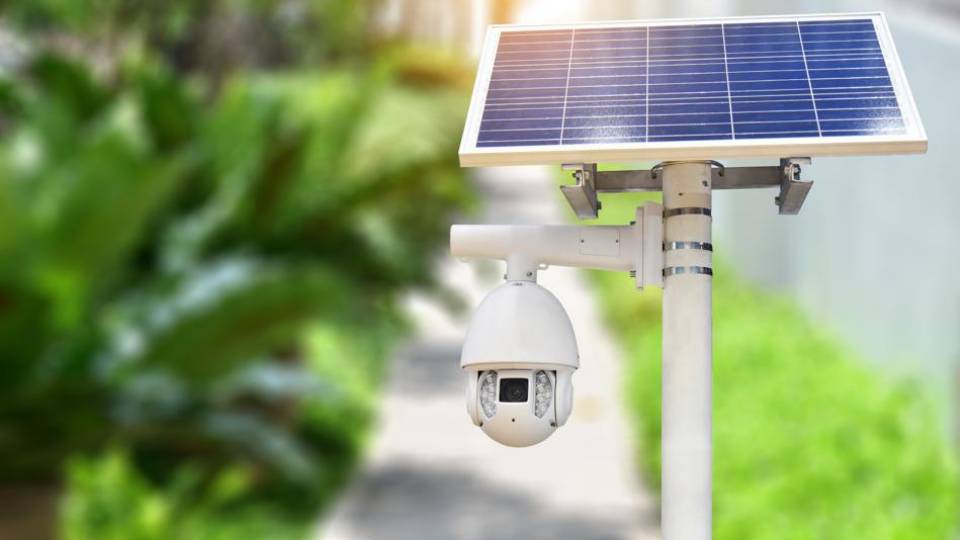Bullet Point Summary:
- 24/7 surveillance is achievable with very minimal energy use via solar camera systems.
- Suitable for Australia’s sunny climate and for any remote locations within it.
- Environmentally friendly, cost-effective solution.
- Can ensure reliability in locations where power supply is erratic or during power grid failures.
- Scalable; businesses or residences can install, implement, and utilize them with ease.
Introduction
Imagine having a security system that never needs to plug in, works seamlessly during power outages, and thrives on sunshine. That is what solar camera systems promise. These ingenious devices are now changing how businesses and homeowners think of security with their flexibility, sustainability, and dependability. In this article, an argument will be given against the background of why, above all else, *solar camera systems* constitute a game-changing feature in Australia.
Solar-Powered Security
It’s an environmentally friendly device, but more importantly, it is the future in surveillance. With Australia receiving in excess of 2,800 hours of sun exposure per year, a solar-powered security camera is ideal for reliable and continuous monitoring. The systems utilize photovoltaic panels that convert sunlight into electrical energy-to consistently power your security cameras, even in remote off-grid areas.
This means that business owners, homeowners, and even the decision makers of large organizations never have to worry about the cost or logistics of electrical wiring. Your solar camera system remains fully functional in rain or shine.
Why Australia Is Perfect for Solar Security Cameras
Australia’s sunny climate gives the country the most ideal setting for solar-powered technologies. Whether you are looking to secure a construction site, rural property, or a city-based company, a *solar security camera system in Australia* offers a very effective and highly versatile approach. Conventional security systems often have some sort of drawbacks when access is restricted to the electrical grid, in areas where access is limited. But solar-powered, on the other hand, goes straight ahead to deliver robust, cost-effective protection in such places.
Key Benefits of Solar Security Cameras
- Cost-Efficiency
Once installed, the solar camera systems largely cut down on energy costs. It requires no expensive wiring and no continuous electricity supply. This can lead to a good amount of savings over a period of time with regard to electricity bills, which is an attractive proposition for homeowners and business operators.
- Environmentally Friendly
In a world where sustainability is so important, solar-powered security systems come as an eco-friendly solution. Operating on renewable energy, these systems will help contribute to your responsibility to minimize carbon footprint levels. All this might be a small step, but quite significant towards a greener future.
- Reliable Power Supply
Blackouts and power outages can cripple traditional security systems, leaving your property so vulnerable. With the *solar camera system*, though, your cameras are always at work, with the capability for energy storage from solar. Plus, most of these systems have the addition of battery backups, even in very low light conditions.
- Scalability and Flexibility
One of the major benefits of the “solar security camera system Australia” is that it is scalable. You can always install more cameras effortlessly with any system without the need for rewiring the electric framework. Whether property expansion, increase in security requirements, or the emergence of newer threats-all these benefits accrue when you have a solar system that provides you with the requisite scope for modification.
Imagine a Western Australian rural farm that is hundreds of acres in size. It can get very expensive to install, using traditional cameras that have to be cabled into an electric supply. The benefit with solar cameras is that farms can be completely monitored, enabling livestock, equipment, and property to be safe from any theft or vandalism.
Equally, solar cameras will be a good option for construction sites where temporary arrangements for security devices are made. This camera will also be pretty mobile as they can easily be transferred from one location to another. Hence, these are ideal solutions that grow with your projects.
Actionable Tips to Implement Solar Security
If you’re considering upgrading your security systems, here’s a few advice you may want to consider:
Determine Your Power Requirements
Solar cameras have different capabilities for power storage. Make sure that you select a system that caters to your environment, especially in cloudy or low-light areas.
Placement is Everything
Place your cameras and solar panel in the best locations to get as much sunlight as possible for continuous operations.
Choose a Trusted Provider
Investment in a reliable provider will definitely ensure a system that can be quickly installed and maintained. For example, Spectur offers a range of solar-powered cameras specifically designed for Australian conditions.
Conclusion
Solar camera systems are changing how individuals all over Australia secure their homes and businesses. The solar camera system presents an environmental-friendly alternative to have different cost-efficient advantages, besides the Australian perfect weather. Whether securing a farmhouse away from home, construction site security, or business security, one would ensure that investment in a *solar camera system* is being made for the future.
If you are ready to make that next step in securing your property, learn more today about solar camera systems and solar security cameras in Australia. It’s time to move into the future of security-one that’s powered by the sun.

